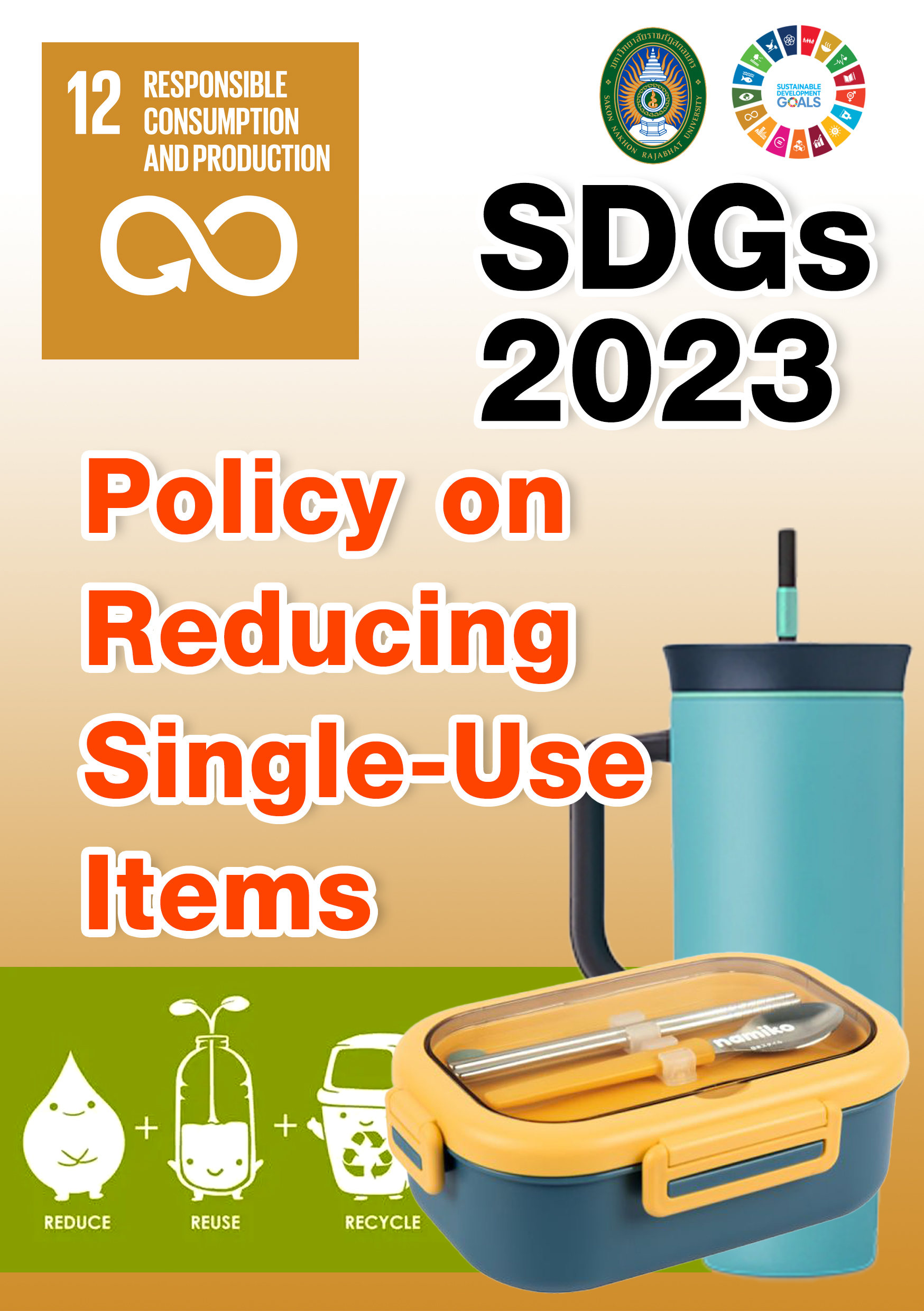This policy is established to promote sustainability at Sakon Nakhon Rajabhat University (SNRU) by reducing the use of single-use items across campus. By encouraging reusable alternatives and sustainable practices, SNRU aims to minimize waste, lower environmental impact, and foster a culture of responsibility among the university community.
1. Policy Statement
SNRU is committed to reducing the consumption of single-use items on campus. This includes limiting disposable products in favor of sustainable and reusable alternatives, aligning with the university’s goals of environmental stewardship and waste reduction.
2. Scope
This policy applies to all students, faculty, staff, vendors, and visitors on campus, including activities in offices, cafeterias, event spaces, classrooms, and common areas.
3. Guiding Principles
– Minimization of Single-Use Products: Encourage the reduction of disposable items, such as plastic utensils, cups, plates, and packaging.
– Promotion of Reusable Alternatives: Foster a culture of using reusable items by providing facilities that support sustainable options, such as refill stations and reusable dining ware.
– Awareness and Education: Raise awareness about the environmental impact of single-use items and promote sustainable alternatives within the university community.
4. Measures to Reduce Single-Use Items
– Restrict the sale and distribution of single-use plastic items (e.g., straws, cups, and plastic bags) at campus facilities, including cafes, stores, and food vendors.
– Encourage the use of reusable cups, plates, and containers in all campus dining areas. Reusable containers should be provided by vendors, or customers can bring their own.
– Increase the number of water refill stations around campus to encourage the use of refillable water bottles, thereby reducing plastic bottle usage.
– Require all university events to adhere to sustainable practices, including using biodegradable or reusable dining ware and minimizing the use of single-use items.
– Prioritize the purchase of durable, reusable products across university departments, aiming to reduce the acquisition of disposable goods.
5. Implementation and Accountability
– All university departments and on-campus vendors are responsible for implementing measures to reduce single-use items and promoting sustainable practices.
– Conduct regular evaluations of single-use item consumption on campus to assess the policy’s effectiveness and identify areas for improvement.
– The Environmental Sustainability Office will review this policy annually, making adjustments as necessary to meet evolving sustainability standards.
6. Awareness and Training
– Run regular awareness campaigns, workshops, and informational sessions to educate the campus community about the environmental impact of single-use items and the benefits of reusable alternatives.
– Place signage around campus and digital reminders to encourage students, faculty, and staff to opt for reusable items, highlighting the environmental benefits.
7. Compliance and Non-Compliance
– University staff and vendors are expected to adhere to this policy, with regular audits to ensure compliance. Failure to comply may lead to corrective actions.
– Feedback channels will be established to gather input from the university community on further reducing single-use items and improving sustainability practices.
Announcement on January 2023




